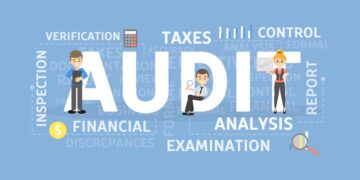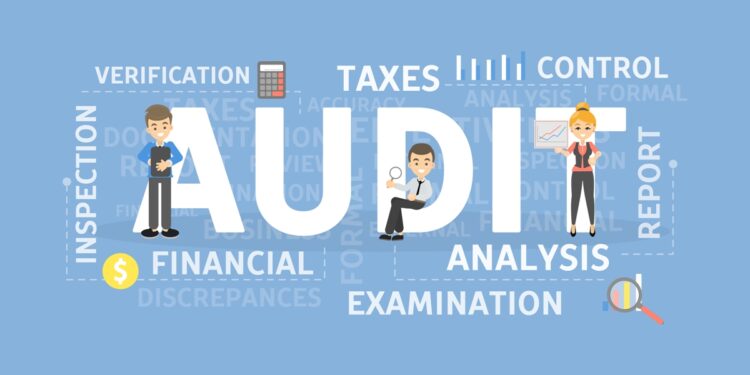Being audited by the Internal Revenue Service (IRS) can be a daunting and nerve-wracking ordeal for any individual paying taxes. To put it simply, an IRS audit is an in-depth review of your tax return to guarantee that all of the data is accurate and adheres to tax legislation.
In this article, we will explore what triggers an IRS audit, the different types of audits, and how taxpayers can avoid them.
It’s imperative for individuals and businesses to take every action possible to refrain from provoking an audit, as the repercussions can include costly penalties, fines, and even legal action if tax evasion is found.
Table of Contents
Red Flags for IRS Audits
The Internal Revenue Service (IRS) performs audits to make sure that taxpayers are accurately disclosing their income and paying the correct amount of taxes. While some audits are random, others are triggered by certain red flags that indicate potential inaccuracies in a person’s tax return. In order to evade an audit and potential consequences, remaining vigilant of any warning signals is essential.
- 1. Failing to report income: The IRS receives copies of W-2s and 1099s, which show the amount of income you received during the year. If you fail to report all of your income, the IRS will take notice and potentially audit you.
- 2. Claiming too many deductions: Making too many deductions may cause doubt. If the amount of deductions is disproportionate to the amount of income or profession, the IRS may become suspicious that the deductions were exaggerated to lower one’s tax burden.
- 3. Mismatched income reported on W-2s and 1099s: The Internal Revenue Service may investigate discrepancies between what is reported on your tax filing and what has been declared on your W-2s and 1099s to guarantee correctness.
- 4. Claiming business losses year after year: If you routinely state that your business operates at a loss, the IRS could examine to see if your company is real or just an excuse to deduct personal costs.
- 5. Having an abnormally high income for your profession or income bracket: The Internal Revenue Service may conduct an audit if your earnings are notably higher than what is generally expected for your job or salary range, to validate the origin of your income and that you are accurately documenting all of it.
- 6. Large charitable donations compared to income: While charitable donations are a noble cause, if your donations are substantially higher than your reported income, it may raise suspicion and could potentially trigger an audit.
- 7. Tax shelter transactions: The Internal Revenue Service might perceive certain tax arrangements as a means of evading taxes, and if you partake in such activities, it could cause an inspection to occur.
To avoid being audited by the IRS, it is helpful to comprehend these warning signs. It is always best to report all of your income accurately and only claim legitimate deductions in accordance with IRS regulations. By carefully taking note of warning signs, you can guarantee that your tax filing is honest and precise, and keep away from any legal trouble or punishments.
What Happens During an IRS Audit?
The IRS audit process involves a thorough examination of a taxpayer’s financial records to verify that their tax returns are accurate and complete. The three types of audits are correspondence, office, and field audits. Correspondence audits are conducted through the mail and are the simplest type. Office audits are conducted at an IRS office, while field audits take place at the taxpayer’s place of business or their tax professional’s office.
During an IRS audit, the taxpayer will be asked to provide documentation to support their tax returns. Documents requested may include bank statements, receipts, invoices, and other financial records. The IRS will review these documents in detail to ensure that the taxpayer has accurately reported their income, deductions, and credits.
To prepare for an audit, it is important to gather all relevant financial records in advance. This includes receipts, invoices, and documents related to sources of income and deductions claimed on tax returns. It is also recommended to consult with a tax professional to help navigate the audit process.
An IRS audit is a process of reviewing a taxpayer’s financial records to ensure accurate reporting of tax returns. The IRS conducts three types of audits: correspondence, office, and field audits. Taxpayers should be prepared to provide documentation and consult with a tax professional to navigate the audit process successfully.
How to Avoid an IRS Audit
While some factors might be beyond the taxpayer’s control, there are steps that individuals and businesses can take to prevent an IRS audit. We recommend the following tips for reducing the risk of an audit:
- 1. Keep thorough and accurate records: Ensure that all your financial records are up-to-date, accurate, and legible. This documentation will help you detect and correct errors before filing your tax return and will serve as a backup if the IRS raises questions later.
- 2. Double-check all forms for accuracy: Always double-check your tax return for any errors or omissions before submitting it to the IRS. The smallest mistake can increase your risk of an audit.
- 3. Avoid shady tax preparers: Be wary of tax preparers making unrealistic deductions and promises that sound too good to be true. Choose a reputable tax preparer with a valid Preparer Tax Identification Number (PTIN) to avoid filing incorrect or fraudulent returns.
- 4. Report all income, even if it is off-the-books or cash payments: The IRS receives copies of W-2s and 1099s, so it is essential to report all earnings, including cash received under the table.
- 5. Be honest and transparent: As long as you accurately report all information on your tax return, the IRS should not have any suspicions of misconduct.
Ultimately, the best way to prevent an IRS audit is to be forthright, honest, and diligent with your taxes. By following these guidelines, you can reduce your risk of triggering an audit and ensure that you remain in compliance with tax laws.
Conclusion
An IRS audit is a serious matter that can create substantial stress and financial hardship for taxpayers. While there is no foolproof way to avoid an audit entirely, taxpayers can significantly reduce their risk of triggering one by taking appropriate precautions. This includes keeping meticulous records, double-checking their returns for accuracy, avoiding shady preparers, reporting all income, and being transparent and honest with the IRS.
Taxpayers can avoid an audit by following these steps and be assured that they are compliant with tax laws. Being proactive is the best way to prevent an audit.



















